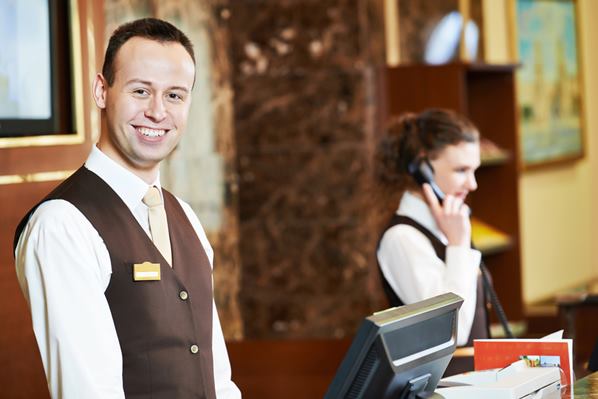
As hospitality professionals, you’re likely aware that exceptional customer service is no longer just a nice-to-have—it’s a must.
Let’s explore some of the latest trends shaping the way hotels enhance guest experiences.
Personalized Experiences
Guests today expect more than just a place to sleep. They want personalized experiences that make them feel special and valued. Hotels are leveraging technology to create these unique moments. For instance, many properties now use guest data to offer personalized recommendations, room preferences, and even welcome notes. Just imagine arriving at a hotel and finding your favorite snack waiting for you. This level of personalization leaves a lasting impression.
Take the example of a boutique hotel in New York. They recently implemented a system where repeat guests receive a customized itinerary based on their past activities and preferences. This not only enhances the guest experience but also builds loyalty.
Contactless Services
The pandemic accelerated the adoption of contactless services across various industries, and hospitality is no exception. From mobile check-ins to digital room keys, hotels are minimizing physical contact to ensure guest safety and convenience. This trend is here to stay, and it’s reshaping the guest experience.
Consider a luxury resort in Bali that offers a fully contactless experience. Guests can check in via an app, use their smartphones as room keys, and order room service without making a call. This seamless, contactless experience has become a significant selling point.
Sustainability Initiatives
Eco-friendly practices are no longer a niche market—they’re mainstream. Guests are increasingly looking for hotels that share their values around sustainability. This trend includes everything from reducing plastic waste to using renewable energy sources. Not only do these initiatives attract eco-conscious travelers, but they also contribute to a hotel’s brand image.
A well-known hotel chain in Europe has taken sustainability to the next level. They’ve eliminated single-use plastics, installed solar panels, and even have a zero-waste restaurant. These efforts have garnered positive attention and attracted a loyal customer base.
Enhanced Staff Training
In an industry where human interaction plays a crucial role, well-trained staff can make all the difference. Hotels are investing more in training programs that focus on empathy, problem-solving, and communication skills. The goal is to ensure that every guest interaction is positive and memorable.
A luxury hotel in Tokyo revamped its training program to focus on emotional intelligence. Staff members are trained to read guest emotions and respond appropriately. This initiative has led to higher guest satisfaction scores and more positive reviews.
Wellness Offerings
Wellness is no longer limited to spas and gyms. Hotels are expanding their wellness offerings to include mental health, nutrition, and holistic experiences. From yoga classes to organic meal options, these services cater to the growing demand for well-rounded wellness experiences.
A resort in the Maldives offers personalized wellness retreats that include yoga, meditation, and nutritional counseling. Guests leave feeling rejuvenated and often make plans to return for another retreat.
In summary
The hotel industry is constantly evolving, and staying updated with the latest trends is crucial for hospitality professionals. By focusing on personalized experiences, contactless services, sustainability, enhanced staff training, and wellness offerings, hotels can create memorable experiences that keep guests coming back.




